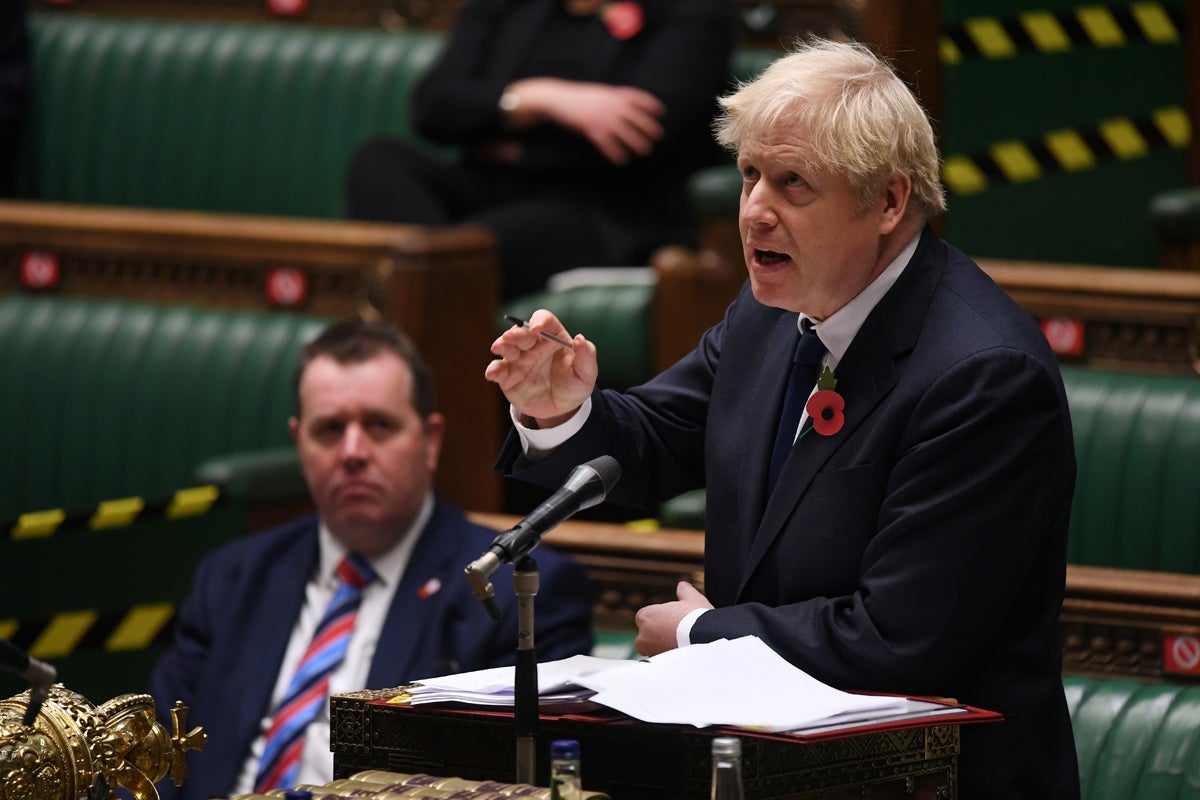There are dangers in setting coronavirus policy while appeasing Conservative backbench rebels
Editorial: The government should stop concentrating on stunts to placate its party and focus on curbing the virus

The way the government is going about drawing up the rules to suppress coronavirus seems to be a case study in the problem of distorted democracy. In the run-up to the vote in the House of Commons on Tuesday about the new tiered system that will replace the England-wide lockdown on Wednesday, all MPs’ votes are equal – but some are more equal than others.
The prime minister’s business managers are most worried about Conservative backbenchers – especially those who have voted against the government before. This means the most powerful voices in deciding the final shape of the regulations are those of MPs who tend to represent rural constituencies with a low incidence of the virus, and those who are ideologically opposed to restrictions on liberty.
That means the government is coming up with gimmicks such as proposing possible “escape routes” from tier three restrictions for villages so that they can be “decoupled” from nearby cities. And, overall, it risks setting restrictions too loosely at a regional or national level.
This is an unexpected side-effect of partisan politics. Boris Johnson is not at risk of losing Tuesday’s vote: the Labour Party is certain to vote for the new tiers, with one or two exceptions such as Graham Stringer (who is opposed to lockdowns) and Tanmanjeet Singh Dhesi (whose Slough constituency is an island of tier three in a sea of tier two). However, the prime minister does not want to be in a position where he is “relying on opposition votes” to get his regulations through parliament – and this is what gives an unrepresentative sample of MPs undue leverage over the policy.
Hence the effort to persuade the potential rebels. Michael Gove, the cabinet office minister, has written an explanation of why he and the other members of the Covid quad of ministers (Johnson, Matt Hancock and Rishi Sunak) decided a month ago to order the national lockdown for England, and why they think almost the whole country has to retain tight restrictions this week.
Mr Gove’s argument is simple, compelling and the same as that in March: that a continuous growth in numbers of hospitalisations would overwhelm the NHS. It is a pity that such an important article should be behind a paywall; and the power of the argument was weakened by the lack of actual numbers relating to NHS capacity. No doubt those will be coming over the next few days.
The big difference between the situation now and in March is that vaccines are imminent. That cuts both ways, in that it may be harder to secure the votes of MPs (and the compliance of their constituents) if they think that the emergency is all but over; but equally it may make it easier, because the end of restrictions is in sight.
We are not convinced that the temporary appointment of Nadhim Zahawi, a junior minister at the business department, to oversee the vaccination programme at the Department of Health is going to make all the difference. Cynics will observe that Mr Zahawi’s constituency of Stratford-upon-Avon is one of those rural seats in tier three because of its proximity to Birmingham.
Clearly, the rapid vaccination of millions of people is a huge and urgent logistical task, but it shouldn’t distract from the need to legislate for and to administer the regime of restrictions required to get the country from here to the safety of mass immunity. As we have argued repeatedly, the authorities need to use the growing rapid-testing capacity to help curb the spread of the virus, and the government should do more to support those who are required to isolate.
The politics of Tuesday’s vote risk distorting the government’s priorities in this penultimate phase of the coronavirus campaign.



Join our commenting forum
Join thought-provoking conversations, follow other Independent readers and see their replies
Comments